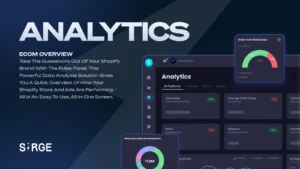Finding the right keywords is the heart of successful search engine optimization (SEO) and paid search campaigns. Keyword research helps you understand what your audience is searching for, the terms they use, and how competitive it is to rank for those terms.
But with an overwhelming number of keyword research tools, how do you separate the must-haves from the duds, especially without breaking the bank? This guide unravels 100+ top-rated free, freemium, and affordable keyword research tools to empower your content strategy and online visibility.
The Power of Free Keyword Research Tools
Don’t let a tight budget constrain your SEO efforts. There’s a wealth of free resources to kickstart your keyword research journey:
- Google Keyword Planner: The foundation of keyword research, this Google Ads tool unveils keyword ideas, search volume trends, and competitive insights. It’s perfect for brainstorming potential keywords and estimating their traffic potential.
- Google Trends: Dive into how keyword popularity shifts over time, discover seasonal demand and compare terms. Excellent for uncovering trending topics and content inspiration.
- Ubersuggest (Free Version): Neil Patel’s Ubersuggest provides a broad overview of keywords, including search volume, keyword difficulty, and competitor data.
- WordStream Free Keyword Tool: Generate relevant keyword suggestions, filter them by industry, and see competitiveness metrics for informed decision-making.
- AnswerThePublic: Want to answer real questions users are asking? This tool mines a treasure trove of question-based keywords related to your subject matter.
- Keyword Surfer: Get instant search volume insights thanks to this Chrome extension that displays data directly within Google search results.
- Soovle: Aggregates autocomplete suggestions from multiple platforms (Google, Amazon, YouTube, etc.) for a wide net of keyword possibilities.
- Keyword Sheeter: For quick, no-frills brainstorming, this tool churns out thousands of long-tail keyword variations.
Upgrade Your Research with Freemium Tools
Freemium plans open the door to a more robust analysis while remaining cost-conscious. Here are top choices:
- Ahrefs Keyword Generator: A powerful player in the SEO space, the free version grants you 100 keyword suggestions and their associated search volume. Dive deeper with their extensive paid plans.
- Semrush (Limited Free Version): This comprehensive SEO suite offers powerful keyword insights even on the free version. Explore search volume, related keywords, keyword difficulty, and more with usage limitations.
- Moz Keyword Explorer (Limited Free Version): Analyze a limited number of keyword metrics like search volume and difficulty within Moz’s respected SEO toolkit.
Affordable Paid Tools for Serious Marketers
When you’re looking for detailed competitor intelligence and long-tail keyword gold, invest in these highly-rated affordable options:
- KWFinder: Boasts an intuitive interface, helps you target low-competition keywords, and provides search volume data and competitor analysis.
- Long Tail Pro: Ideal for niche websites and highly targeted campaigns. Uncover untapped, low-competition keywords with high conversion potential.
- SE Ranking: Offers more than just keywords; this full-fledged SEO toolkit delivers in-depth keyword research alongside competitor analysis.
- SpyFu: Gain a competitive edge by peeking at your competitor’s successful keywords and ad strategies. Uncover the terms fueling their search visibility.
- Jaaxy: Provides a user-friendly blend of keyword suggestions, search volume, competition insights, and domain name availability checks.
H2: Choosing the Right Tools: Things to Consider
With so many options, your best bet often hinges on specific needs. Evaluate tools based on these factors:
- Features: Do you need basics like search volume and difficulty, or do you want full SERP analysis, question-based keywords, and advanced competitor tracking?
- Database Size: For comprehensive results, bigger keyword databases provide a greater pool of suggestions.
- Reporting: How easy is it to organize, customize, and export data for your presentations or workflows?
- Ease of Use: Balance ease of use against potential learning curves for complex features.
Beyond the Standard Toolkit: Specialized Keyword Research Tools
Think outside the box for even more keyword opportunities. Niche and specialty tools provide an array of unique benefits:
- AlsoAsked: Visualize relationships between frequently asked questions and identify “People Also Ask” opportunities in search results. Uncover new angles for your content.
- Exploding Topics: Find emerging trends and keywords before they hit their peak search volume. Stay ahead of the curve and position yourself as a thought leader.
- Google Search Console: Within your website’s data, find keywords you already rank for but could improve through further content optimization.
- Bulk Keyword Generator: Quickly generates targeted keyword variations based on location, industry, or specific modifiers – great for local SEO or product-focused keywords.
- QuestionDB: Tap into real questions from forums like Reddit to see the natural conversational language your target audience uses.
Tips for Success with Keyword Research Tools
- Mastering your keywords isn’t just about the tools; it’s also about strategic thinking. Leverage these tips:
- Start with Broad Seed Keywords: Begin with basic terms describing your business or products (‘home decor’, ‘vegan recipes’). Tools will expand from this base.
- Focus on Relevance AND Potential: Balance high search volume keywords with ones highly specific to your audience, increasing conversions.
- Don’t Neglect Long-Tail Keywords: Less competition & high intent! Tools identify questions or phrases (‘how to grow tomatoes in balcony pots’).
- Look at Related Keywords & People Also Ask: Generate content ideas, and cover adjacent search intent.
- Competitor Keyword Analysis: Uncover gaps in their content you can address or successful keywords you can target yourself.
- Revisit Your Keywords Regularly: Keyword popularity shifts over time. Tools help you adjust and find new opportunities.
Bonus! Beyond the Digital: Non-Tool Keyword Sources
Keywords shouldn’t exist in a vacuum. Use real-world information for inspiration:
- Customer Reviews & Support Calls: What specific language do your real customers use? Look for pain points and questions addressed.
- Social Media Listening: Monitor relevant hashtags and conversation threads in niche forums to gather the terms your audience uses organically.
- Industry Publications & Trade Shows: Keep abreast of the latest trending terms and niche vocabularies your target audience utilizes.
Conclusion
The sheer breadth of keyword research tools underscores the significance of this activity for achieving your digital marketing goals. Whether you’re a solo blogger or an established enterprise, there are tools tailored to your budget and ambitions.
Start experimenting with several options, identify your favorites, and constantly evaluate what works best for your content strategy. With some smart planning, the right keywords unlock tremendous potential in attracting those coveted web visitors, leads, and customers.




